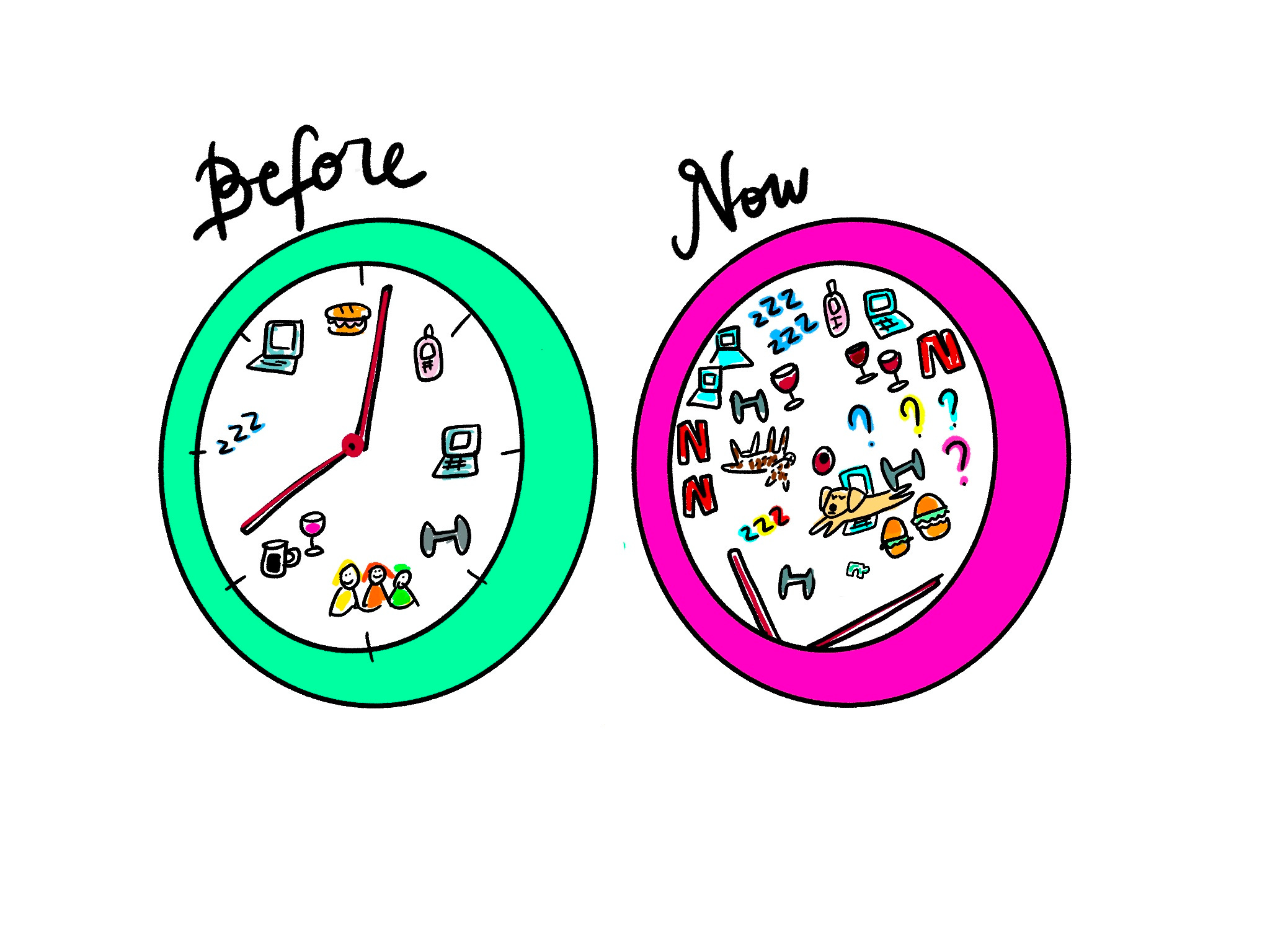Welcome. I’m Anna Codrea-Rado and this is my newsletter about trying to build a solo career that fulfils me creatively, makes me some cash and doesn’t burn me out. If that’s a problem you’re also struggling with – you’re in the right place. (And if this email was forwarded to you, sign up for it here) I’m also the author of the practical guide to freelancing, You’re The Business, which “Ian D” on Amazon described as: “tightly written, confident and often very witty.” A witty book about freelancing, can you even imagine! The day of writing this, I got up early to do my morning routine. I’d been feeling out of whack, so I thought I’d turn to one of my productivity staples: starting my day off on the right foot by doing some journaling, meditation and a long walk with the dog. As I was diligently running through all those things, I realised I was totally knackered. I was furious at being up so early (despite being a morning person!) and my rituals weren’t having the desired effect. I wanted to feel better and somehow I felt worse. And then a very good question entered my mind: what on earth am I doing? The idea of carving out “me time” first in the morning is a great one. But here’s the thing, in my world, all day is me time. I don’t have kids, I don’t go to an office, I don’t work for someone else. Sure, the daily grind of mundane tasks (emails, laundry, paying bills) demands a lot of my attention, but by in large I can still organise my days in a way that suits me. Maybe I feel out of whack because I’m just that: exhausted! Would I really benefit from waking up to meditate in the silence of the early hours, or did I just need a little more sleep? These questions are part of a bigger reckoning I’ve been having lately about my compulsive need to get shit done. Why am I always so hellbent on planning things to within an inch of their life? I used to think that was a desirable trait and that being well-organised was a “good” thing (especially for a freelance writer). And then I read Oliver Burkeman’s Four Thousand Weeks: Time Management for Mortals and was confronted with a radical (and brutal) realisation. Not only is this frantic need to control my time pointless – it’s also a massive distraction. I interviewed Oliver this week for my podcast, Is This Working, and we talked about our complicated relationship with time, how we turn to productivity hacks to get on top of everything we want to achieve in life and the resulting paradox that the more we try to manage our time, the busier and more anxious we feel.
Something he said in our interview really stayed with me: “The drive to become more efficient at all costs usually has, consciously or otherwise, some kind of fantasy endpoint where you’re able to do ‘everything’. Everything that you could think of, everything that people could demand of you, everything you feel obliged to do. You could do it. That’s really just eternal life by another means. One option is to live forever, another option is to do an unlimited amount in the time you’ve got – they both amount to a superhuman approach.” In other words, we can do anything, but we can’t do everything… because we’re going to die!! (The book is called 4,000 weeks because that’s roughly how much time the average person has to spend on this earth). Our ~deep chats~ made me think about how even my choice to work for myself is perhaps a reflection of the fact that I’m compelled to try and control everything. Like many freelancers, one of the things I value so much about working for myself is autonomy over my schedule. But I’ve started to notice how much crankier I am these days when my day gets thrown off by something unexpected. I’ve come to realise how that rigidity says a lot about me and I’m now reminding myself that I am not, in fact, the master of time. I think it’s important to stress that as much as I love to blame the pandemic for all my current woes, this particular one predates it. And I have the receipts to prove it – I wrote a newsletter in early 2020 about how I was struggling to rest for rest’s sake and the guilt that brought up for me. “In trying to rest, I somehow find myself even more tired,” I wrote. In some ways, I feel exactly as I did back then. But, thankfully, my thinking has also evolved enough to create space for some solutions. Back then, I was sceptical of the idea of planning one’s free time. But I’ve since learned a cognitive behavioural technique, called behavioural activation, which basically involves scheduling your hobbies. It works on the premise that motivation follows action; if you start doing something, you then find yourself enjoying it, rather than waiting for the mood to strike you. It worked tremendously well for me. So the logic would follow that getting up early to do some things that are objectively good for me would also raise my mood. Except here’s the thing: you need to have a good reason to be doing those things if they’re going to make any positive impact. To be fair to all the proponents of a morning routine, the best ones always say that you need to be clear on why you want to be getting up early. When I get honest with myself, my reasoning was totally off. I was just getting up early because I felt like I should. And that’s never a good reason to do something in my experience. So tomorrow, I’m going to spend my time well, by doing something I really want to do: sleep.
💌 P.S.RELEVANT TO YOUR INTERESTS
SUBSCRIBE AND SHAREIf this newsletter made you rethink your complicated relationship with time, please press that little heart button and then forward it to a friend. And if you aren’t already, sign up to receive it directly to your inbox on Fridays This post contains affiliate links, which means I may earn a small commission if you click through and make a purchase. The revenue generated supports this newsletter. All my work is independent and is in no way influenced by any advertiser or commercial initiative. |




No comments:
Post a Comment